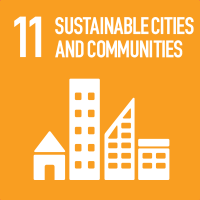Studying at the University of Verona
Here you can find information on the organisational aspects of the Programme, lecture timetables, learning activities and useful contact details for your time at the University, from enrolment to graduation.
Study Plan
This information is intended exclusively for students already enrolled in this course.If you are a new student interested in enrolling, you can find information about the course of study on the course page:
Laurea in Lingue e letterature straniere - Enrollment from 2025/2026The Study Plan includes all modules, teaching and learning activities that each student will need to undertake during their time at the University.
Please select your Study Plan based on your enrollment year.
1° Year
| Modules | Credits | TAF | SSD |
|---|
1st foreign language2nd foreign language1st foreign literature2nd foreign literature1 module between the following2° Year activated in the A.Y. 2024/2025
| Modules | Credits | TAF | SSD |
|---|
1st foreign language2nd foreign language1st foreign literature2nd foreign literature3° Year It will be activated in the A.Y. 2025/2026
| Modules | Credits | TAF | SSD |
|---|
1st foreign language2nd foreign language1st foreign literature2nd foreign literature1 module among the following (philology must related to 1st or 2nd foreign language)1 module between the following| Modules | Credits | TAF | SSD |
|---|
1st foreign language2nd foreign language1st foreign literature2nd foreign literature1 module between the following| Modules | Credits | TAF | SSD |
|---|
1st foreign language2nd foreign language1st foreign literature2nd foreign literature| Modules | Credits | TAF | SSD |
|---|
1st foreign language2nd foreign language1st foreign literature2nd foreign literature1 module among the following (philology must related to 1st or 2nd foreign language)1 module between the following| Modules | Credits | TAF | SSD |
|---|
Legend | Type of training activity (TTA)
TAF (Type of Educational Activity) All courses and activities are classified into different types of educational activities, indicated by a letter.
Italian Literature (2023/2024)
Teaching code
4S00741
Teacher
Credits
6
Language
Italian
Scientific Disciplinary Sector (SSD)
L-FIL-LET/10 - ITALIAN LITERATURE
Period
I semestre (Lingue e letterature straniere) dal Sep 25, 2023 al Dec 22, 2023.
Courses Single
Authorized
Learning objectives
The course aims to introduce to the study of Italian literature through the analysis of significant works especially considering their relationships with foreign literary traditions. At the end of the course the student will be able to - contextualize, understand and comment on a literary text; - move with competence in the framework of the Italian literary tradition and its main thematic and formal characteristics, with attention to the intersections with the European literature.
Program
The Grand Tour between educational journey and sentimental journey: "the age of experience" The course delves into the cultural experience of the Grand Tour, taking inspiration from Foscoli's work (from the translation of Laurence Sterne's 'Sentimental Journey' to the English articles on 'Classic Journeys in Italy' and on 'Italian Women') which rereads the stereotypes created by Northern European odeporic literature, focusing on the sociological, pedagogical, political aspects and on the issue of 'gender' in the wake of Madame's 'Corinne ou l'Italie' de Staël (1807). Against the historical-evolutionary background of the theme of travel (inserted in the Italian literary tradition, with textual references to Dante, Petrarca, Boccaccio, Ariosto, Alfieri, Baretti), the specific meaning of the Grand Tour as a journey of knowledge and as a journey will be highlighted sentimental (based on imagination, subjectivity, sensitivity, encounter with the other) according to Yorick-Sterne's anticipatory doubling. Finally, at the crossroads between literary text and visual text, the iconographic status of the Grand Tour will be analysed, which is reflected in the 'en plein air' descriptions, in neoclassical ruinism, in eighteenth-century landscape painting, in the 'sublime' landscape that emerge between the second half of the eighteenth century and the beginning of the nineteenth century, so as to confirm that "revolution of the gaze" at the center of the construction of national identity, which passes precisely from the experience of travellers, capable of transforming Italy from "foreign to itself" to topos rhetorical, that is, the sum of national characteristics, stabilized in recognizable and identifying images. In addition to thus marking a unique moment of mutual knowledge between Northern and Southern Europe, the Grand Tour built historical reflection on the landscape, on the paths of memory, on the relationship between writing and experience.
Bibliography
Didactic methods
- Lectures - Meetings with scholars/authors - Reading and commentary on texts - Discussions of critical hypotheses - Workshop on women travelers of the Grand Tour / the flaneuse between the nineteenth and twentieth centuries
The teaching materials will be uploaded to the Moodle platform, which students are invited to use to sign up. To make up for missed lessons, please contact the teacher (rossella.bonfatti@univr.it).
Non-attending students are strongly recommended to study the historical-critical monograph by M. Palumbo, Foscolo, Bologna, Il Mulino, 2016; and the essay by P. Fasano, Literature and travel, Rome-Bari, Laterza, 2006.
Learning assessment procedures
Oral exam
Students who intend to follow the teaching as a single course are asked to contact the teacher for agreements on how to carry out the exam.
Evaluation criteria
1) The achievement by the student of an organic vision of the topics addressed, the knowledge of the bibliography and of the proposed texts, their critical discussion and comment, the demonstration of an expressive mastery, and of a specialized language will be evaluated with marks of excellence ( 27-30L). 2) Mostly mnemonic knowledge of the subject, capacity for synthesis and not in-depth analysis, notions that are not well connected and decontextualized, correct but not always appropriate language will lead to fair/good evaluations (22-26) 3) Approximate knowledge of the bibliography, superficial understanding of the topics, poor analytical skills, inappropriate language will be evaluated with graded judgments of sufficiency (18-21) 4) Gaps in preparation, inappropriate language, lack of orientation within the bibliographic materials and texts addressed they can only be evaluated negatively with judgments of insufficiency (<18)
Exam language
Italiano



